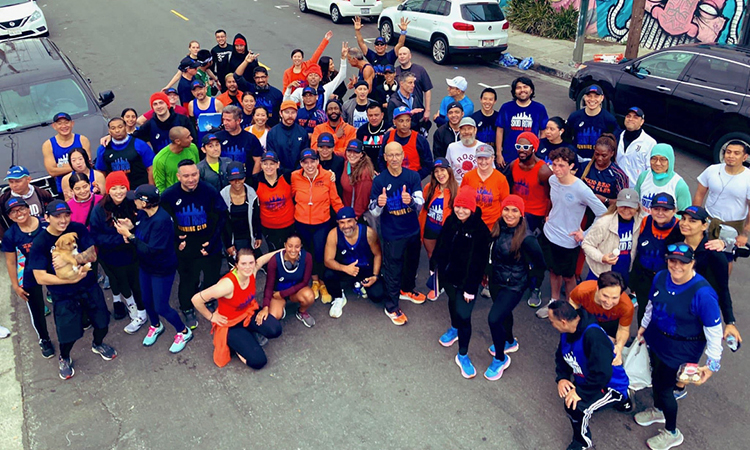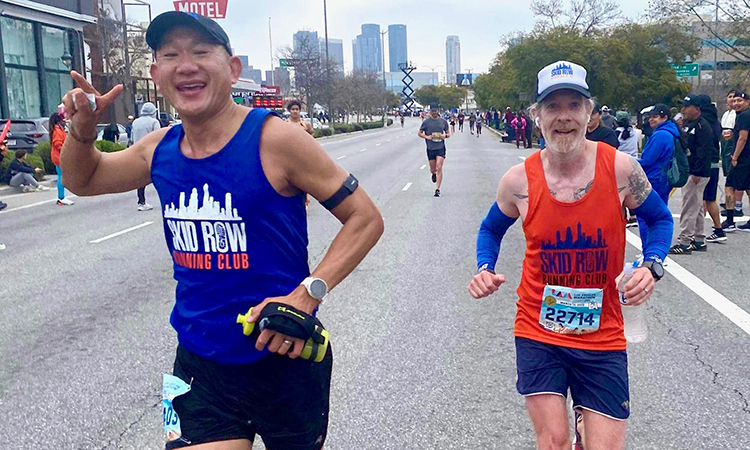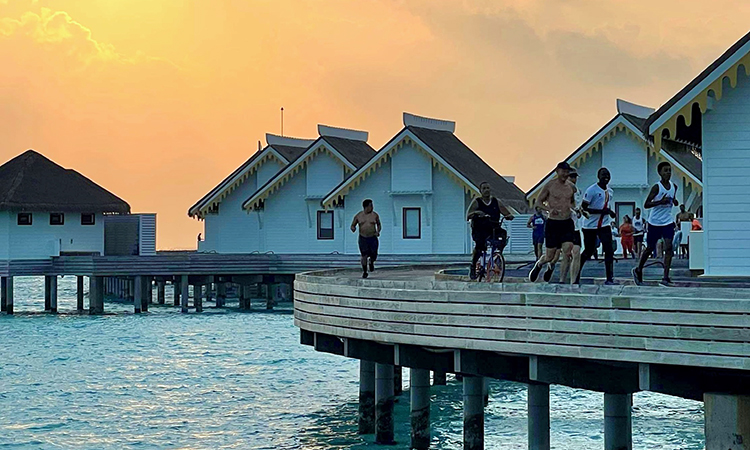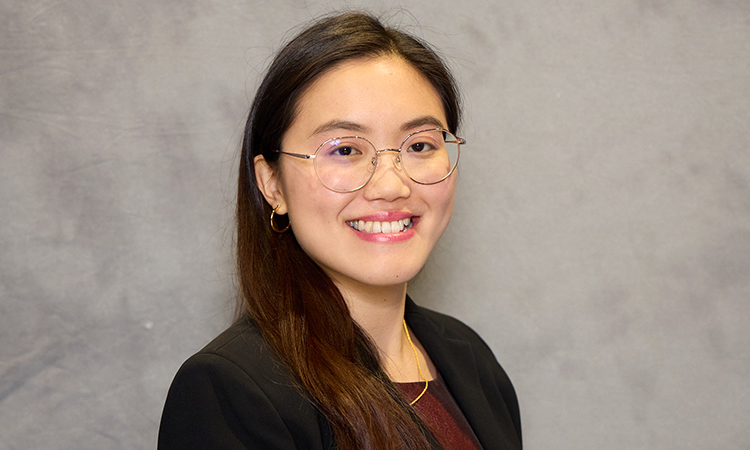As the sun rises over downtown Los Angeles, a disparate group of about 30 people assembles in front of the Midnight Mission on San Pedro Street, in the heart of the city’s infamous Skid Row. Many are currently or formerly unhoused, or battling addiction; they are joined by supporters and friends from widely different backgrounds. Among them are business persons, members of law enforcement, lawyers, doctors, mental health counselors, and government workers. And on many of these mornings, faculty members or students from the Kaiser Permanente Bernard J. Tyson School of Medicine.
From there, they run – past skyscrapers and apartment buildings and tent cities, over bridges and through streets marked by extreme wealth and extreme poverty. Every Monday and Thursday at 6 a.m., with this roughly five-mile run, the Skid Row Running Club uses fitness to help its members focus on health and well-being and lift themselves out of at-risk life on the city streets.
“The people I've met in the running club have shared their stories with me and inspired me,” said Maureen Connelly, MD, MPH, Associate Dean of Academic and Community Affairs, who runs with the club regularly. “It's just this eclectic group, who are sort of all together, running. I'm one of the very slowest, and I was as welcome as people who are, you know, running marathons in under two and half hours.”
Connelly is among a handful of KPSOM faculty and students who have become involved with the club in recent years. Some volunteer to provide basic medical support at marathons and other events, others act as advisers, and some simply run alongside club members for fitness and an opportunity to learn more about the community. Although this involvement with the running club is informal and not part of the curriculum, it is reflective of the school’s engagement with the people of Skid Row, founded on a partnership with the JWCH Institute Inc. Medical Clinic (aka the Wesley Health Center), a Federally Qualified Health Center, where KPSOM students have been embedded since 2020 via the Service-Learning course. It is also reflective of a wider interaction between students and underresourced communities, through the Service-Learning practicum and other opportunities, in which they experience the positive effects on health and well-being that come from exposure to the arts, advancing social and environmental justice, access to community gardens, housing advocacy, local empowerment, and more.
“KPSOM’s involvement in Skid Row is extremely important,” said Lori Carter-Edwards, PhD, MPH, Associate Dean for Community Engagement and Government Affairs. “Respecting the lived experience of this unique community and supporting people experiencing homelessness requires being present, learning, reflecting, and serving. Los Angeles has the largest epidemic of homelessness in the nation, and it intersects so many elements of health.”
The Skid Row Running Club was founded by the Hon. Craig Mitchell, a Los Angeles County Superior Court Judge who was elected to the bench in 2005 and presides over felony criminal trials in a downtown courtroom. (Note: Mitchell has currently taken a leave of absence from the court and has announced his candidacy for Los Angeles County District Attorney.) Mitchell started the club in 2012 after a man who’d been tried in his courtroom and served a prison sentence invited him to visit the Midnight Mission and meet the people there. The mission is a fixture in the downtown community, a nonprofit dedicated to drug and alcohol recovery programs and offering a variety of assistance to those most in need.
Mitchell wanted to help, but he had three children in college and wasn’t able to give financial assistance. However, he’d been an avid runner for 15 years, so he offered his time and passion for running as a way to help lift people up. The club started with just a few participants and has evolved into a large and regular group that not only runs together but also has members competing regularly in the Los Angeles Marathon. The club has sent runners around the world to run in marathons in Rome, Ghana, Vietnam, Israel, South America, and other places; its theme is "Transforming Lives One Run At A Time.”
There is a large body of research demonstrating the beneficial effects of exercise on physical and mental health, and that running can be an effective part of drug and alcohol addiction treatment. Mitchell believes the group also benefits its members on a more fundamental level.
“There are so many little things that emanate from this very basic idea of just running,” said Mitchell, known simply as “the judge” to members. The club, “...[G]ives people in recovery, people who are homeless, a sense of community," he says. "Many of them have been estranged from their families for many, many years due to their drug use. This is a real opportunity to bond with a group of people that care about each other."
Bringing people from different professions and from organizations like KPSOM into the running club is part of a strategy to recruit mentors, who are critical to the program’s success, Mitchell added. Their presence offers guidance and inspiration to those in recovery, and sometimes they also help with the rigors of the road.
“Yes, the judge likes to call us mentors,” said John Su, MD, MPH, Assistant Professor of Health Systems Science and a Family and Sports Medicine physician with Kaiser Permanente. “Some of the club members are newer to distance running, so we provide training advice and moral support on long training runs. Being a sports med doc, typically I am the guy to get a phone call or message to talk somebody through some aches and pains they might be going through. But honestly I feel I’ve learned more than I have taught.”





